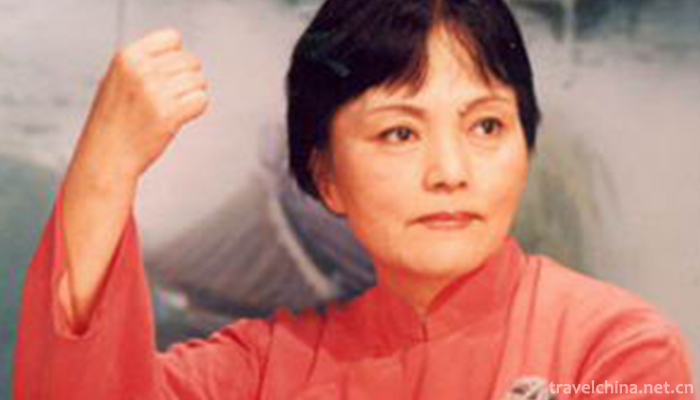Hangzhou Reviews
Hangzhou Reviews
Hangzhou Ci Commentary, commonly known as Xiaoshu, is the traditional art of rap and singing in Hangzhou, Zhejiang Province. It is a kind of folk art that tells stories in Hangzhou dialect, and belongs to the category of Tanci. It is popular in Hangzhou, Yuhang, Xiaoshan, Tonglu, Shaoxing and Zhuji.
In 2008, Hangzhou's commentary was approved by the State Council and included in the second batch of national intangible cultural heritage list.
Historical origin
Hangzhou Ci Commentary was formed at the end of Ming Dynasty and the beginning of Zhao Dynasty. It evolved from Nanci Ci and was called "document" at that time. It is also called "Qinshu" because it plays Erhu as its main accompaniment instrument.
This kind of music began to flourish in the middle of the Qing Dynasty. There were more than 80 artists in the late Qing Dynasty and the early Republic of China.
In the four years of the Republic of China (1915), the "Popular Education Society for Ci Comments" and "Guangyu Society for Ci Comments" were established, and several schools of art were formed.
In 1958, Hangzhou Ci-commenting artists all joined the Hangzhou Quyi Troupe.
Before the mid-1960s, the performance of Hangzhou Ci Commentary was still very active; from the late 1970s to the early 1980s, there were still two or three performers. At present, there are only two old artists in their eighties.
Form of performance
The form of Hangzhou's commentary is mainly composed of one person, Fans and handkerchiefs are used as props when speaking a watch, accompanied by huqin when singing, Dongxiang tune and seven-character sentences.
bibliography
Hangzhou's traditional bibliography of more than 30 long poems is roughly the same as that of other kinds of poems. But the story happened mainly in Hangzhou's "White Snake Biography" and other bibliographies. The plot and details are quite different from other kinds of operas and performances. They have Hangzhou's regional characteristics. There are also unique bibliographies such as "Red Snake Biography" and "Green Snake Biography". There are also many unique "poems of mentioning Tang Dynasty" reflecting Hangzhou's local customs. Traditional bibliographies are mostly based on boudoir love, gifted scholars and beautiful women. For example, "Double Pearl Phoenix", "Pearl Tower", "Golden Seal", "White Snake Biography", "Pink Dressing Tower", "White Crane Picture", "Double Golden Flowers" and so on, a book can be said to be less than fifteen days, more than one month. Creating new books include Bitter Cauliflower, Plain Gunshooting and so on.
Inheritance significance
Hangzhou Ci Commentary has a long history. Its performance form, rap and singing skills, singing and accompaniment music, as well as book (song) catalogues, are unique in Chinese Ci and Quyi, and have great protection, inheritance and research value.


-
2.Jinsi Gorge Scenic Area
Jinsi Gorge Scenic Area of Shangluo City, Shaanxi Province, is located in the hinterland of Xinkailing in the southeast of Shangnan County, Shangluo City.
Time 2018-12-12 -
3.Lion Mountain Scenic Area
Lion Mountain Scenic Area is located in the east of Shaoshan Scenic Area, which is divided into Lion Mountain Scenic Area and Benbenling Scenic Area.
Time 2019-02-08 -
4.Wulingyuan
Wulingyuan Scenic Spot is located in the northwest of Hunan Province, central China. Its longitude is 110 20'30 ~110 41'15 and latitude is 29 16'25 ~29 24'25
Time 2019-02-24 -
5.Tibetan Engraving and Printing Skills of Dege School of Printing
Tibetan engraving and printing skills of Dege Printing Institute, local traditional handicraft skills of Dege County, Sichuan Province, and one of the national intangible cultural heritages.
Time 2019-04-26 -
6.Brocade song
Brocade song, formerly known as Gezi or Shijin song, is also called begging tune. It was named Jinge in 1953. This is a form of singing accompanied by instrumental music.
Time 2019-05-07 -
7.Legend of Yongding River
Yongding River legend is one of the local folklores in Beijing. Among many legends, the legend of river blocking is representative; the legend of Shijing Mountain and Shijing Mountain; the legend of b
Time 2019-07-14 -
8.Song pool of the Zhuang nationality
Song pool of the Zhuang nationality is a form of Festival gathering and singing activities held by the masses of the Zhuang nationality at a specific time and place.
Time 2019-08-16 -
9.Hua Tuo
Hua Tuo (about 145 ad - 208 AD), the character is changed into one. Pei country Qiao County People, Eastern Han Dynasty The famous medical scientist at the end of the year.
Time 2019-09-07 -
10.Panzhihua scenic spot
Gesala Ecotourism Area is a national AAAA tourist attraction, a provincial tourist resort and a provincial ecotourism area. It is located in the northwest of Panzhihua City, about 110 km away from the urban area. There are ten thousand acres of pines, azalea sea, Yi People's customs and Tiankeng floor drain.
Time 2020-12-14 -
11.Leshan economy
In 2019, Leshan's GDP will reach 186.331 billion yuan, an increase of 7.6% over the previous year in terms of comparable prices. The industrial value increased by 24.288 billion yuan, with an increase of 24.288 billion yuan in the first value, and the second
Time 2020-12-17 -
12.Yibin special dishes
Yibin people like noodles most, such as stewed chicken noodles, salty and fresh noodles, sausage noodles, beef noodles, Beijing sauce noodles, mushroom noodles, three fresh noodles, spicy chicken noodles, eel noodles, Longfeng noodles. Among them, burnin
Time 2020-12-18